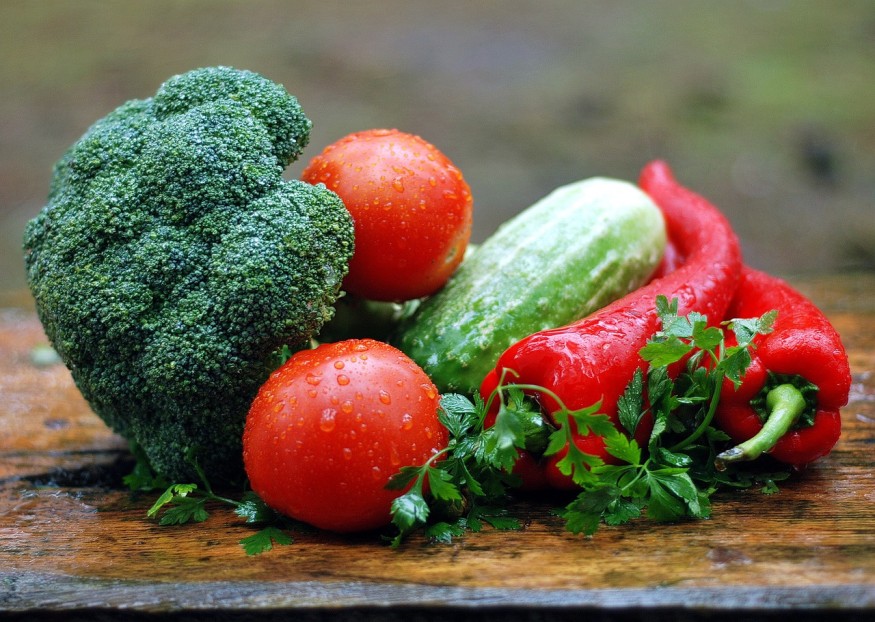Consuming food that is rich in nutrients is essential for living a long life. Different cooking methods such as boiling, steaming, baking, and roasting are applied to improve its texture, taste, and flavor and kill naturally present microorganisms. On the other hand, even though cooking is necessary to enhance the digestion of most of these foods, some of them undergo nutrient content reduction upon excessive exposure to heat due to their solubility in water, mostly in vegetables.
According to Suttle Health, food nutrients can be decreased when vegetables are cooked or boiled at high temperatures or in water. Food preparation procedures like this frequently result in the loss of water-soluble vitamins like vitamin C and B vitamins. Moreover, minerals such as potassium, phosphorus, calcium, magnesium, iron, and zinc may see a reduction of up to sixty to seventy percent.
Let's explore seven foods that lose nutrients when cooked and ways to avoid them.

1. Spinach
Despite being renowned for its iron content, spinach suffers a setback after being subjected to heat. It contains oxalic acid, which forms crystals with calcium and reduces the amount of calcium absorbed by the body. Consider consuming raw spinach in salads or smoothies to preserve the maximum nutrients.
2. Broccoli
Overcooking broccoli can result in losing key elements, particularly vitamin C, even though broccoli is a high-nutrient vegetable. Short-term preparation methods such as steaming or stir-frying can assist in preserving the nutritional value of the food.
3. Almonds
When almonds are subjected to high temperatures, their normally beneficial lipids might become rancid. Consume these nuts in the form of dishes rather than preparing them in the oven to reap the benefits of their consumption. Almonds slivered can be sprinkled on salads or eaten as a snack alone.
4. Honey
Enzymes, antioxidants, and antibacterial capabilities are all found in raw honey, making it a significant source of nutrients. However, heating honey might cause these valuable components to be destroyed. Honey should be consumed naturally, such as by spreading it over curd or toast, to maintain its beneficial properties.
5. Tomatoes
The cooking process causes the tomato to lose some of its vitamin C content. Increasing temperatures cause the vitamin, which is sensitive to heat, to diminish. Accordingly, tomatoes should be consumed in their raw state or prepared using light cooking methods such as blanching to maintain their nutritional value.
6. Curd
When exposed to high temperatures, the probiotics found in curd, vital for maintaining gut health, can be impaired. You may maintain the probiotic benefits of curd by either consuming it in its raw form or adding it to cooked recipes after gently chilling it.
7. Garlic
Raw garlic has a stronger immune-boosting effect than cooked garlic. The molecule responsible for allicin's beneficial effects on health is not resistant to heat. Adding chopped garlic to your foods right before serving will allow you to reap the full advantages of this ingredient.
Are Raw Foods Better for Your Health Than Cooked Foods?
Certain foods like fresh vegetables and fruits may contain more nutrients than cooked alternatives. However, this is not the case for all of them. Compared to cooked food, certain raw foods may increase the likelihood that you will become ill from a foodborne illness. Accordingly, the flavor of food can be improved through cooking, but the meal's nutritional value is altered as a result. While cooking food causes the loss of some vitamins, it also makes other vitamins more accessible to the body, which is an interesting phenomenon. Thus some cooked foods also have evident nutritional value, providing essential nutrients for daily life.
As per the British Heart Foundation, the cooking process makes consuming animal- and plant-based protein sources simpler and safer. It is necessary to cook certain plant pulses, such as kidney beans, to eliminate their harmful substances. Furthermore, eggs, pork, and fish can be consumed raw occasionally, yet heating these foods decreases the risk of contracting food poisoning.
Related Article: Fruits and Vegetables Declining in Nutrients
To keep up with the latest news on trending recipes, food safety, and more, follow Food World News!



